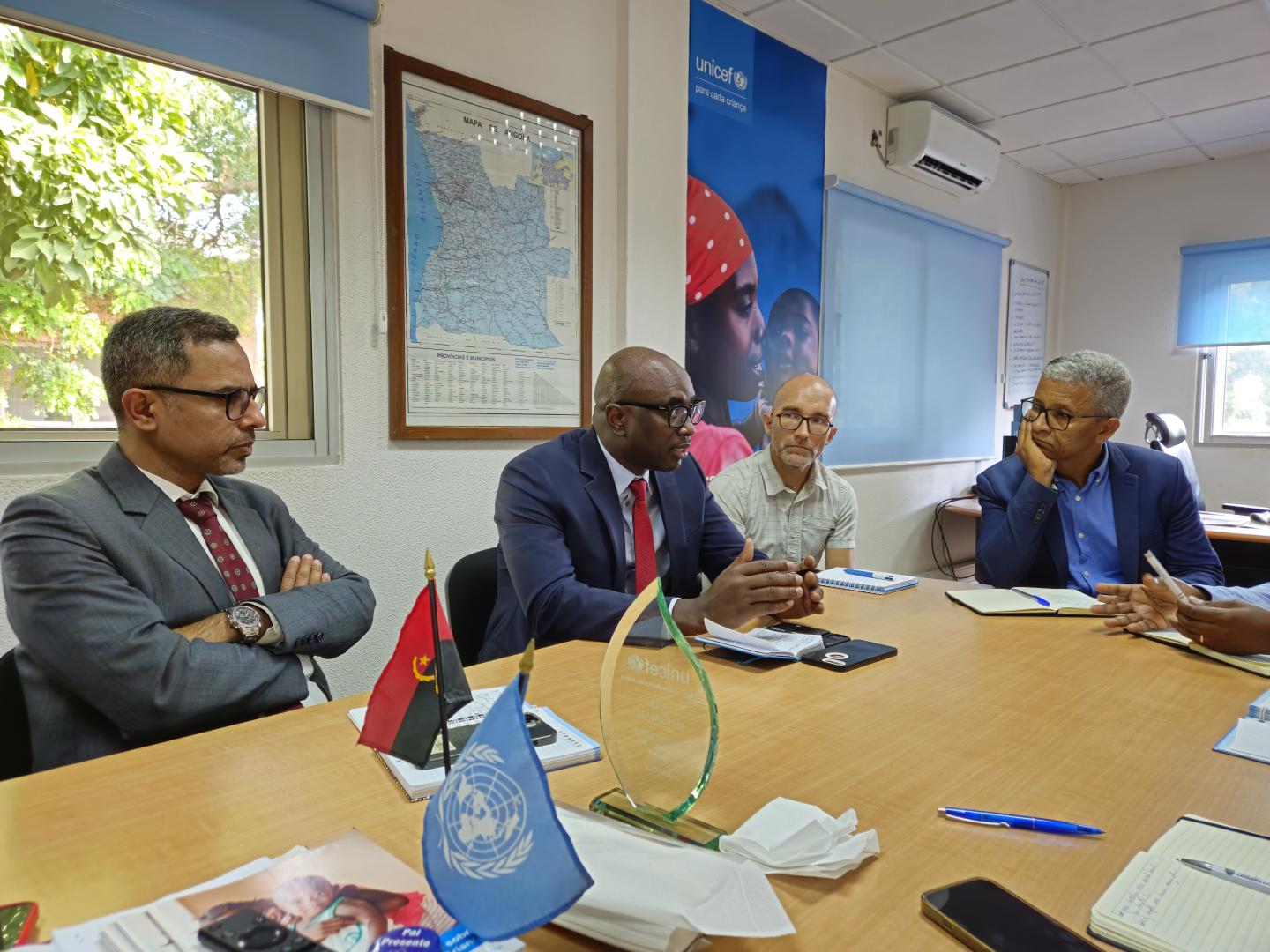As Angola contends with a rapidly growing cholera outbreak that has now affected 17 of the country’s 21 provinces, the World Health Organization (WHO) deployed a high-level emergency mission to support the national response and accelerate coordinated action.
From 23 to 29 March 2025, Dr. Abdou Salam Gueye, WHO Regional Director for Emergencies in Africa, and Dr. Philippe Barboza, Head of the Global Cholera Programme, conducted a high-level technical mission to Angola. Their visit comes as the country reports 9,452 cases and 367 deaths as of 28 March 2025, with a case fatality rate of 3.9%—well above emergency thresholds. A third of all deaths are occurring in the community, pointing to delayed access to care.
“The situation requires urgent, sustained, and targeted action,” said Dr. Gueye. “Our visit aimed to identify immediate priorities and support the government in putting in place a coordinated, results-driven response.”
The delegation met with senior government officials—including the Ministers of Health, Energy and Water, and Environment—as well as the Vice-Governor of Luanda. They visited cholera treatment and oral rehydration sites in Sambizanga and Cacuaco, two of Luanda’s hardest-hit municipalities, and engaged with frontline responders to assess operational gaps.
Meetings with partners, including UNICEF, the World Bank, the French Embassy, and other development agencies, focused on aligning efforts and unlocking immediate support.
The mission issued key recommendations to reduce mortality and halt cholera transmission. These include lowering the case fatality rate below 1% by decentralizing care and setting up small treatment centers in high-risk areas, establishing more Oral Rehydration Points for early access to rehydration, and strengthening case management and health worker training amongst others. The mission also called for the formalization of a joint Incident Management System co-led by the Ministries of Health and Energy & Water, with biweekly coordination meetings.
The WHO Country Office is working closely with national authorities to implement the recommendations and expand the response. As the rainy season continues and the risk of regional spread increases, time is of the essence.



